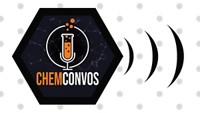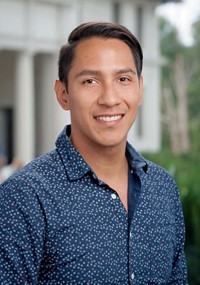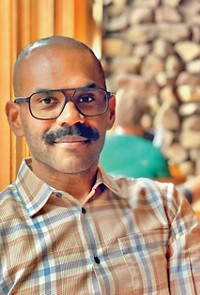Fascinated by the power of organic synthesis and catalysis, early-career Massachusetts Institute of Technology chemist Alison Wendlandt is solving cutting-edge questions. Wendlandt is pushing the boundaries of selective, catalytic chemistry in alkene isomerization reactions and carbohydrate and complex molecule synthesis. Bec Roldan spoke with Wendlandt about her journey to leading her own research lab and how being queer has been integral to that journey. This interview has been edited for length and clarity.

Credit: Justin Knight
Vitals
Alison Wendlandt
Hometown: Golden, Colorado
Education: BS, University of Chicago, 2007; PhD, University of Wisconsin–Madison, 2015
Current position: Assistant professor, Massachusetts Institute of Technology
LGBTQ+ identity: Queer
Favorite lab tool: Acetone wash bottle: for all the amazing reaction ideas that are not such amazing reaction ideas
Precious pets and plants: We have a neurotic dog, an 18-year-old cat, and something of a plant-hoarding situation.
Bec Roldan: So, how did you find your way to organic chemistry?
Alison Wendlandt: I initially entered college as a math major and quickly realized what real math was, and that was not my thing. Then I found organic chemistry, and that language of organic chemistry really made sense to me. I fell in love with that class. Once I managed to find my way into a research lab, I realized I really enjoyed the day-to-day work of organic chemistry much more than any other lab experience I ever had. If you can find some joy in running a column, then it’s OK if that reaction failed in the end, right? That really sustained me through graduate school and my postdoc, just loving the actual work.
BR: I can definitely relate to that. Being in the research lab as an undergraduate felt so right to me. There’s a real art to organic chemistry and an opportunity to be creative, which I always loved. So you’re now an assistant professor of chemistry at MIT—what was an influential moment or two that got you to where you are now?
AW: I remember publishing my first paper; it was a really [bad] paper, but I was like, I’m going to make it work. I just remember when that paper was done and finished, I thought to myself, I can do this. I can do chemistry research, and I can publish papers. And I can think of projects and drive them through to completion. And then I was like, Well, now I want to write good papers.
BR: Yeah, just getting that first bit of validation is so important. Knowing that somebody thinks what I’m doing is at least good enough to be published.
AW: Yeah, it was a real confidence boost as a first-year graduate student. I remember thinking, I can push myself now that I know where my feet are. Another great experience I had was getting an opportunity to work with my heroes. I really love Shannon Stahl’s work. I really love Eric Jacobsen’s work, and so to get the chance to do my training in their labs was incredible. For some people, opportunities like that are all around them, and for others of us, we see a lot of closed doors. And then when you see an open door like that, for me anyway, I was going to make the most of it.
BR: I definitely get what you’re saying of feeling like doors are just automatically closed to you and not knowing if you’re going to have a chance in this field. That was a big thing for me in graduate school, and joining Corey Stephenson’s lab, getting the validation that I can actually do this, was so important to me. Really excelling in graduate school was never something I saw for myself, so just having someone say, “I think that you’re good enough to be here, and I’m going to actively support you by opening these doors that you never knew were possible” was huge.
AW: That’s exactly right. Can I ask, what are you hoping to do after graduate school?
BR: That’s a big question. I would love to go into the field of science communication, although I’m not quite sure what that looks like yet. I love getting people excited about science and making it more accessible. I also really enjoy just talking with people. If I could do something where I just talk to different people every day, I’d be so happy.
AW: That’s awesome. Yeah, I wanted to tell you that I’m a huge fan of your podcast [My Fave Queer Chemist]. You’re pretty famous for it.
BR: I’m flattered, really. Doing the show has been one of the highlights of my graduate career. We’ll have to have you on sometime.
I think being different, whatever that means—in my case, being LGBTQ—has been like a superpower. It’s granted me the opportunity to reflect on my interests, my desires, and my life.
BR: Switching back to you, has your identity as an LGBTQ+ person influenced or impacted your career so far?
AW: I’d say on the positive side. I think being different, whatever that means—in my case, being LGBTQ—has been like a superpower. It’s granted me the opportunity to reflect on my interests, my desires, and my life. It’s allowed me to pursue a career that’s very honest to my own needs. And it’s also given me the permission to not care about what other people think about my work.
BR: I feel like LGBTQ+ people do a lot of self-reflection and internal work to really figure out, Who am I, as a person? We’re already forced to think past what is “normal” or “acceptable” in our society, so we’re able to reach a different level of understanding of ourselves. I think it complements chemistry and the STEM [science, technology, engineering, and mathematics] fields in general well, because we’re able to think deeply and creatively and differently about things because we’ve had to do that with ourselves.
AW: Exactly. It’s allowed me to see the structures, to see heterosexism, to see patriarchy in a way that you just don’t see if you never have to confront those things in such a personal way. It allows us, as you were saying, to do creative and boundary-pushing work. That said, you know, every day slamming your head again and again into the heterosexism of the patriarchy is hard.
BR: Definitely. Just existing in a field that was honestly not built for us and that isn’t always necessarily the most supportive of us is hard. I’ve experienced some of the worst transphobia of my life in the chemistry field since I came out a few years ago. We end up pushing through a system that was not really intended for us to succeed, which is why I love talking to you and other LGBTQ+ people who have just excelled so much in their careers. It’s so inspiring to me, and hopefully the people who are reading this issue, knowing that despite all the horrible things that not only the chemistry field but also the society that we live in throws at us, being able to still push through that and be successful is just one of the best things in the world. That’s why I just love queer and trans people so much.
AW: You know, we’re so awesome. We really are.
BR: Do you have any advice for younger LGBTQ+ chemists who want to pursue a career in academia?

Credit: Courtesy of Bec Roldan
Bec Roldan uses the power of radical chemistry in the synthesis of biologically relevant organic molecules. They are a cohost of the podcast My Fave Queer Chemist.
Vitals
Bec Roldan
Hometown: Saint Francisville, Louisiana
Education: BS, Rhodes College, 2019
Current position: PhD candidate, synthetic organic chemistry, University of Michigan, Corey Stephenson’s lab
LGBTQ+ identity: Queer, nonbinary person
Favorite element: Carbon, easy. Can’t mess with perfection.
Favorite lab tool: Post-it notes, definitely. Is that a lab tool? It’s a lab tool for me, at least. They’re all over my desk and bench space. Without them, my ADHD brain would get the best of me and I would never remember anything. Oh and the speaker in my bay because that’s how I get my Taylor Swift fix.
AW: It’s cheesy, but I think being yourself is so huge. Be out and loud if you’re able to. Otherwise, it’s just going to create friction. And any place that’s not prepared to accept you is not a place where you want to be. The other thing I’ll say is that there’s still a lot of work that needs to be done. It’s sort of borne on the backs of individuals, every time you confront a structure that’s not working, and you fight through it, it does take a little piece of your energy and a little piece of you, but it’s making the path a little bit better for people behind you. I do think we have to have that sense of purpose and history. We still need to be doing that work.
Chemical & Engineering News
ISSN 0009-2347
Copyright © 2024 American Chemical Society
Sign up for C&EN's must-read weekly newsletter







Join the conversation
Contact the reporter
Submit a Letter to the Editor for publication
Engage with us on Twitter